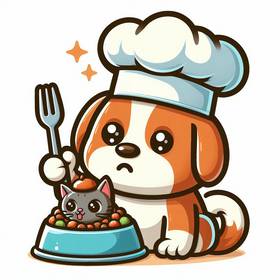Nutritional Differences Between Dog and Cat Food
Different pets have unique nutritional needs, and understanding the variances between dog and cat food is crucial for their well-being. One key difference is in protein content; cat food typically contains higher protein levels suited for feline muscle needs, while dog food focuses more on a balanced mix of protein, fats, and carbohydrates.
Additionally, cats require certain amino acids like taurine, which is often supplemented in their food but isn't a major concern for dogs. Tailoring their diets according to these variations ensures both your canine and feline friends stay healthy and happy
Additionally, cats require certain amino acids like taurine, which is often supplemented in their food but isn't a major concern for dogs. Tailoring their diets according to these variations ensures both your canine and feline friends stay healthy and happy
Impact of Cat Food on Dog's Health
Cat food can have a significant impact on a dog's health, especially if consumed regularly. One of the key issues is that cat food is formulated differently from dog food, often containing higher levels of protein and fat. This can lead to weight gain and obesity in dogs, along with potential digestive issues like diarrhea or vomiting.
Additionally, certain nutrients in cat food, such as taurine, can be excessive for dogs and may cause health problems over time. It's crucial for pet owners to understand these differences and ensure their dogs receive the appropriate nutrition for their species to maintain optimal health.
Additionally, certain nutrients in cat food, such as taurine, can be excessive for dogs and may cause health problems over time. It's crucial for pet owners to understand these differences and ensure their dogs receive the appropriate nutrition for their species to maintain optimal health.



